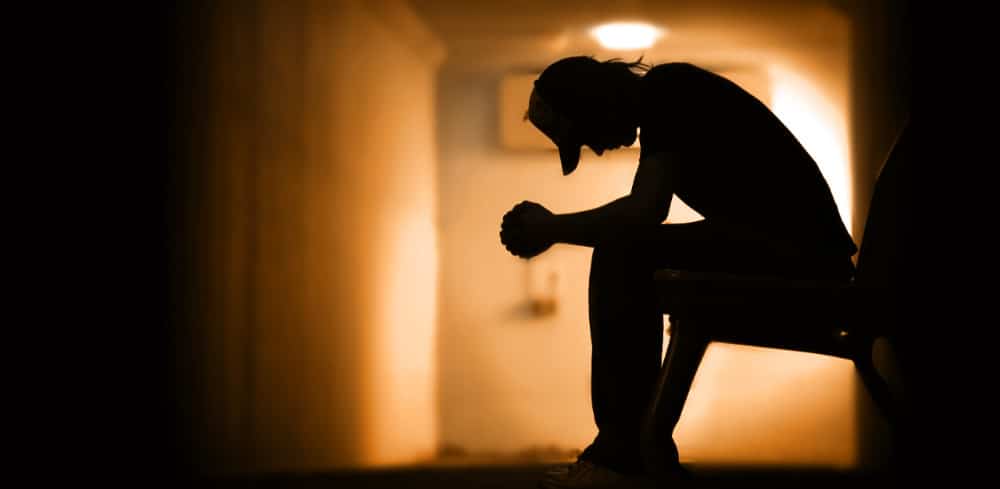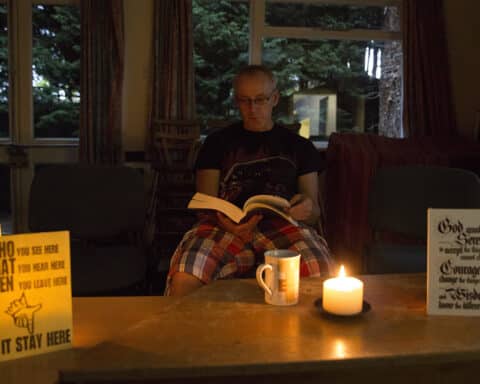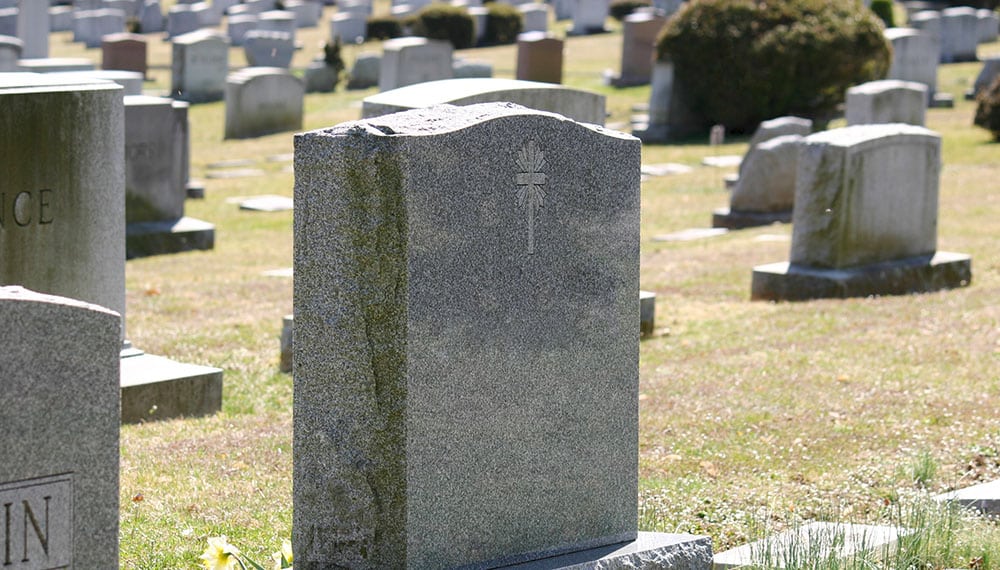
Addiction changes you, and his body craved the stuff — marijuana in high school, then heroin and ultimately fentanyl. He had been in and out of rehab and was about to go back in. One night during his last week here, in fact, he tried to check himself in, and although he was told there would be a bed, there wasn’t. He often would take a little so that he could keep his body functioning. That kind of self-medication gives you the impression it works until it doesn’t.
By every account, Luke was a good kid. He was a “sweetheart,” a young woman who grew up with him told his Dad at the wake, who could only agree. How a mother and father ever live without the opportunity to hug their son or daughter can only be a miracle of God’s grace. So, too, not being able to help their child be freed of such a stronghold.
Now, Ed and Peggy know their beloved son, Luke, is not struggling with addiction anymore. I pray that they can get to a place where that is truly a consolation.
At the wake, his mother played a song that resonated with Luke. It’s titled “That Wasn’t Me.” The refrain was clearly the cry of his heart to his family and friends: “Tell me: Did I go on a tangent? Did I lie through my teeth? Did I cause you to stumble on your feet? Did I bring shame on my family? Did it show when I was weak?” And then: “Whatever you’ve seen, that wasn’t me. That wasn’t me, oh that wasn’t me.”
One of the verses includes: “But I want you to know that you’ll never be alone. I wanna believe. Do I make myself a blessing to everyone I meet?”
His mom also talked about the two Lukes. Sober Luke was generous and loving. His uncle shared during his eulogy that, in his last week, Luke also gave some of his clothes from his bag as he was traveling to a man who had just been released from prison and was trying to begin again.
There but by the mercy of God go any one of us. Addictions of various kinds can be crutches that get us through the day. Priests and religious are not immune. No one is. I had been praying for Luke for many years, and I know I am not alone. His parents have a circle of pray-er friends, including the Sisters of Life, some of whom were with them in the days after Luke’s death at home, at the wake and the funeral Mass.
I found myself thinking: Can we ever pray enough in the face of suffering?
The local Irish pub hosted a gratis brunch after the Mass — they would not charge parents who lost a child. The owner even pitched in.
In solidarity with the Mechmanns in their grief, can we all pray more for those who are wrestling with some of the deadliest addictions? And Luke had tremendous support. How many others have none? COVID, of course, has made everything worse.
Which brings us back to the Eucharist. It’s where our power lies. Giving everything to God. Knowing that it is he who gives us strength. If you’ve lost a child, God knows the depths of your love and your pain. Mary is with you, bringing her deep into the heart of her Son.
Please pray for the repose of the soul of Luke Mechmann and for the consolation of his family. And for all those who struggle with addiction. And that we all may be more sensitive to the pain others are enduring imperfectly as humans do. Bring it all to Jesus in the Eucharist. He died so that we might live. May Luke be with the Father for eternity.
Kathryn Jean Lopez is a senior fellow at the National Review Institute and editor-at-large of National Review.





